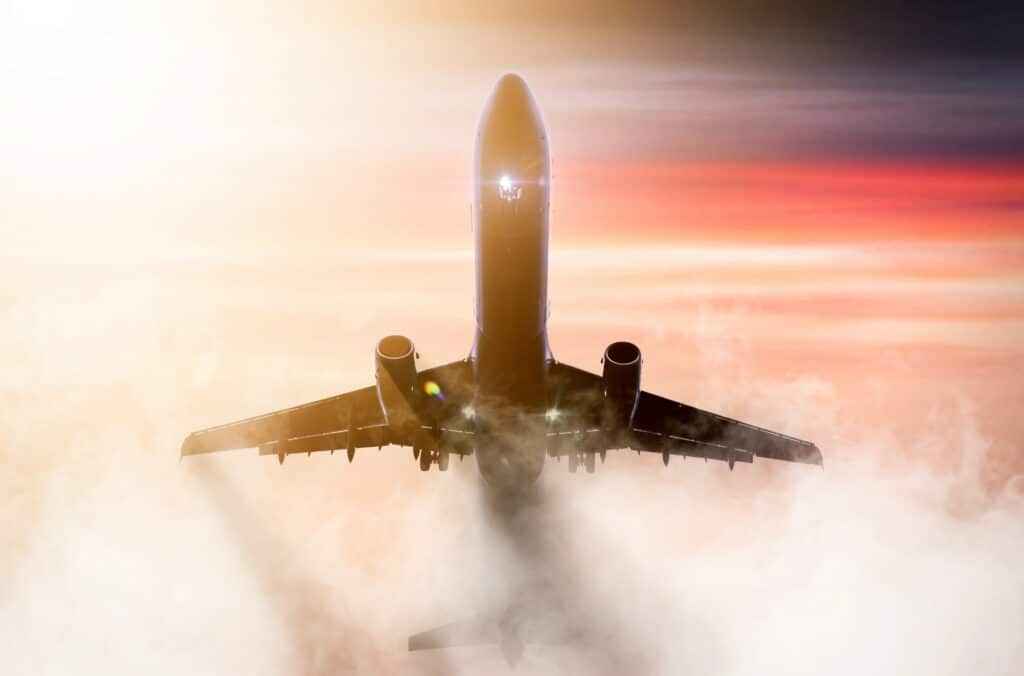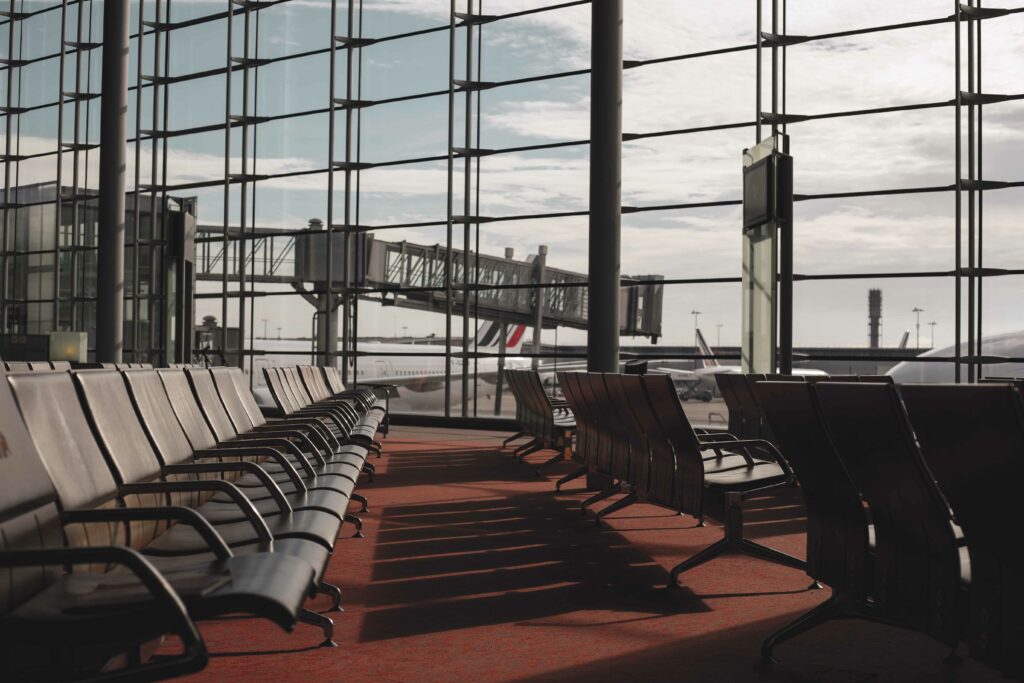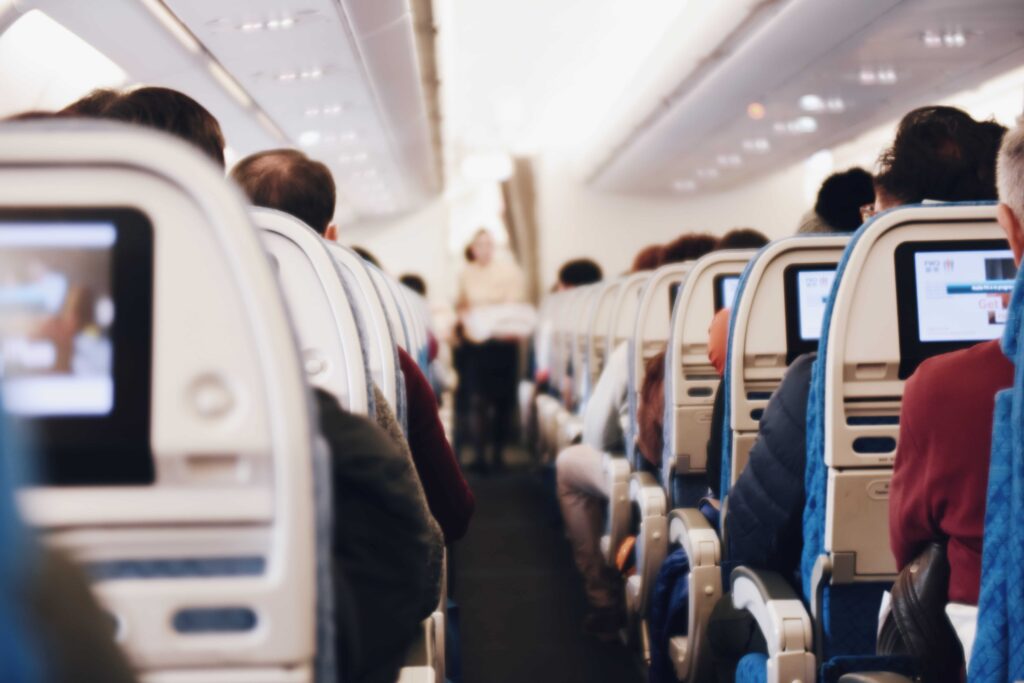Charting a sustainable flight path for the EU aviation sector
"For the EU aviation sector to achieve economic and environmental sustainability, three areas must be addressed: 1) to meet the needs of required investment; 2) to improve the system of airport slot allocation; and 3) to create a level playing field" argues Prof. dr. Steven Truxal, Professor of Air and Space Law, Leiden University, Director, International Institute of Air and Space Law, in his recent opinion piece where he reflects upon the discussions of the 18th Florence Air Forum.
This article by Steven Truxal, Professor of Air and Space Law at Leiden University and Director of the International Institute of Air and Space Law, originally appeared in the European Transport Regulation Observer “Towards Resilient and Sustainable Aviation: Implications for Competition and Competitiveness” (December, 2022).
The COVID-19 pandemic has truly put the economic resilience of the global aviation industry to the test. As the European Union (EU) aviation sector learns lessons from the crisis and looks to the future, its focus must be to build its economic and environmental sustainability. The two aspects are inextricably linked and are challenged by the realities of competition within the EU and internationally.
For the EU aviation sector to achieve economic and environmental sustainability, three areas must be addressed: 1) to meet the needs of required investment; 2) to improve the system of airport slot allocation; and 3) to create a level playing field.
Firstly and most crucially for its successful future, the EU aviation sector will require an incredible amount of investment to achieve sustainability objectives. Fleet renewals, including greener aircraft, development of sustainable aviation fuel (SAF) and improving airport infrastructure are costly actions. As an alternative, carriers may raise airfares and air cargo tariffs to meet the costs, though that would be unpopular with passengers and shippers and would impact earnings.
In the face of the sector’s widespread losses during the crisis, private investors may be wary unless the sector generates opportunities for more attractive, green investments. The archaic nationality-based ownership and control rules, which have been promulgated in restrictive bilateral Air Services Agreements (ASAs), constrain prospective foreign investment, market access and liberalisation generally.
State intervention in the market, which had a more limited scope before the crisis, will be possible for certain categories of public investment under the new Guidelines on State aid for Climate, Energy and Environmental Protection (CEEAG). The question is will Member States offer aid to aviation stakeholders so as to meet their obligations under the European Climate Law (Regulation 2021/1119), and if so, on what conditions. Required investments in SAF and obligations on fuel suppliers will be driven by the proposed RefuelEU Aviation Initiative.
We have seen radical things happen during the present crisis. Member States, such as France and Austria, have required airlines to give environmental commitments in exchange for State aid. Such conditionality can be traced to an emerging political will to utilise public investment to drive forward the green transition.
The EU aviation sector’s overall attractiveness to investors and customers may ultimately hinge on a future change to the structure of the market. The crisis has revealed the vulnerability of the current system of pre-paid tickets issued in exchange for a future obligation to perform air services, also in light of the EU Air Passenger Rights Regulation.
Secondly, the system for allocation of airport slots at Europe’s most congested airports must be improved. The EU Airport Slot Allocation Regulation (SAR) was designed in a different era when ‘new’ slots would be added to the slot pool; now steps are being taken to reduce the number of aircraft movements in the EU. While the current system is flexible at times, as in the current crisis, the hard reality is that despite airport expansions and improvements to existing infrastructure, there remain serious capacity constraints at EU airports, most recently also labour shortages. A proposed recast of the SAR has been blocked in the Council for a decade.
Meanwhile, the existing allocation system is not working. For example, the Dutch slots coordinator, ACNL, had adopted a new Policy Rule that prescribed a list of priority destinations for slot allocations at Amsterdam Schiphol, Eindhoven and Rotterdam-The Hague airports. The International Air Transport Association (IATA) then brought a legal challenge to the Policy Rule and was successful. Although ACNL is for now prohibited from applying the Policy Rule, the experience shows that the waters are being tested, in this case through an intervention in slot allocations by way of additional criteria.
The experience of slot trading on the secondary market at London Heathrow and Gatwick airports seems to suggest that slot trading drives airline consolidation; the big get bigger. If further airline consolidation in the EU is undesirable, in the interests of promoting competition among airlines and reducing flag carrier dominance at hubs, then the legalisation of secondary trading of airport slots in the EU should be reviewed.
Any future SAR or alternative form of addressing airport slots must reflect the EU’s green objectives. There is an opportunity — at EU level — by imposing regulatory restrictions, or ‘caps’ on slot holdings, to limit or reduce the dominance of flag carriers at the EU’s most congested airports. This would create new opportunities for competition while aligning the use and optimisation of airport capacity with the European Green Deal.
Thirdly, the future of creating a ‘level playing field’ has grown in scope to include not only ‘fair competition’ but also sustainability.
Within the EU, the levels of temporary State aid provided in the COVID-19 crisis to support airlines, airports and ground handlers have varied across the Member States, raising questions about the European level playing field. The Temporary Framework expired on 30 June 2022; it will not be renewed. With other crises affecting EU aviation – the Russia-Ukraine War, staff shortages across all industry stakeholders – will additional financial support soon be needed?
Internationally, the work that started before the COVID-19 pandemic on targeting foreign subsidies will continue, which may make the EU vulnerable in overseas markets and lead to tensions in international trade. For the EU aviation sector, there is valid concern that air passengers and cargo may be diverted to hubs outside the EU, owing to the EU Emissions Trading Scheme and its proposed component, the Carbon Border Adjustment Mechanism, alongside the planned staggered SAF blending mandate under RefuelEU.
In July 2022, the International Civil Aviation Organization (ICAO) convened a high-level meeting on the feasibility of a long-term aspirational goal for international aviation CO2 emissions reductions, which was adopted at the triennial ICAO Assembly held in September and October 2022, when all eyes were on Montréal. Will multilateralism deliver continued support for the global Carbon Offsetting and Reduction Scheme for International Aviation (CORSIA)? And will EU ETS and CORSIA be linked, and if so, how? European carriers stand to be disadvantaged if a workable solution is not found. Could bilateralism, by way of ASAs, be an alternative tool for achieving commonality for greener aviation? While these are not new questions, arguably they have never been more pertinent.







